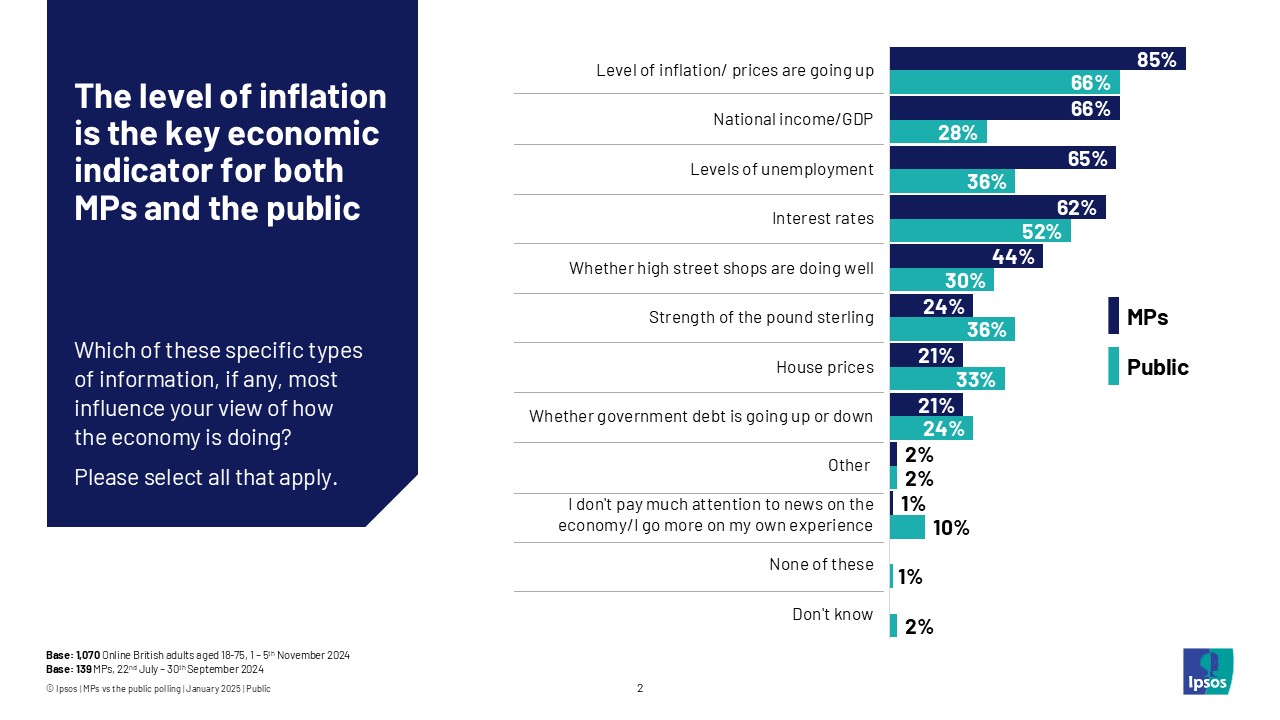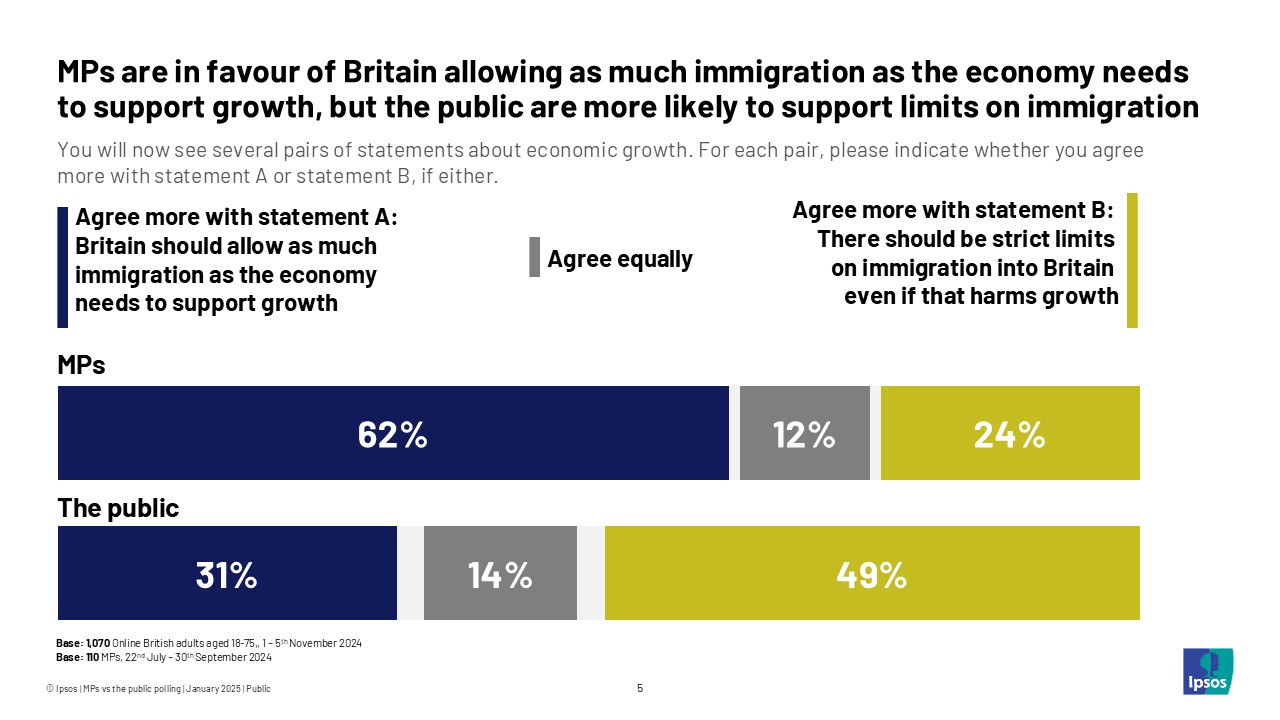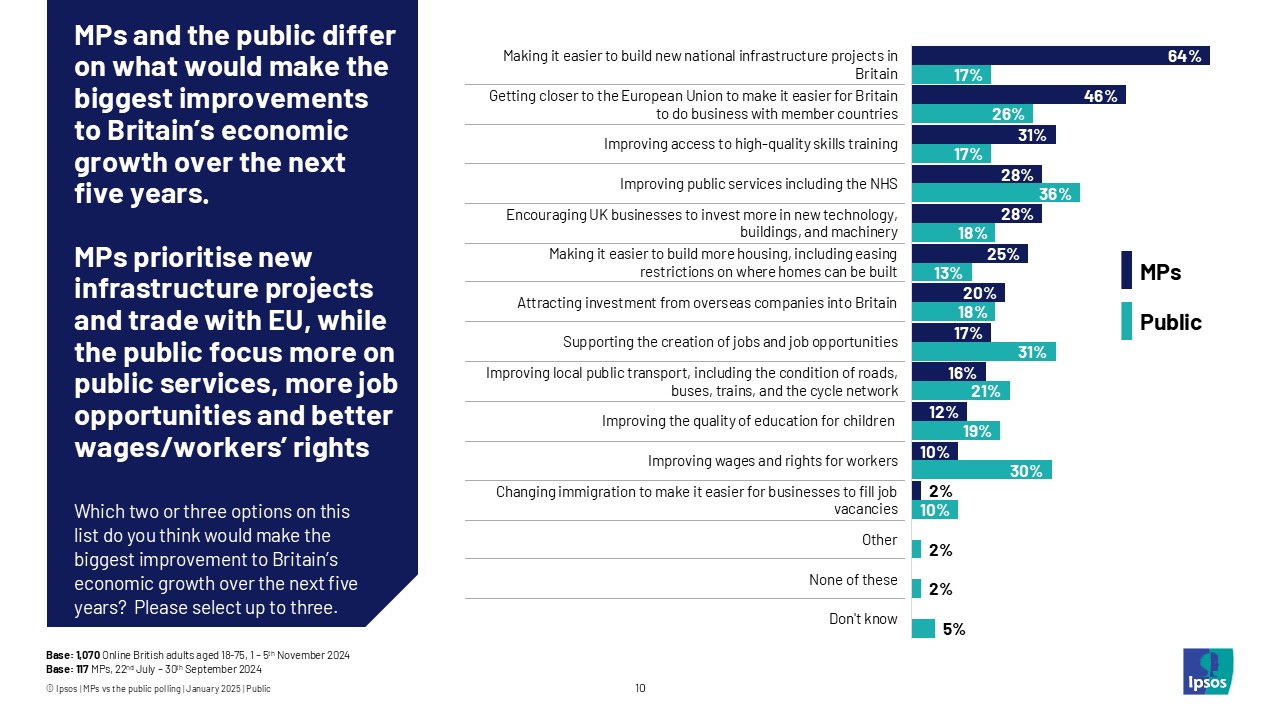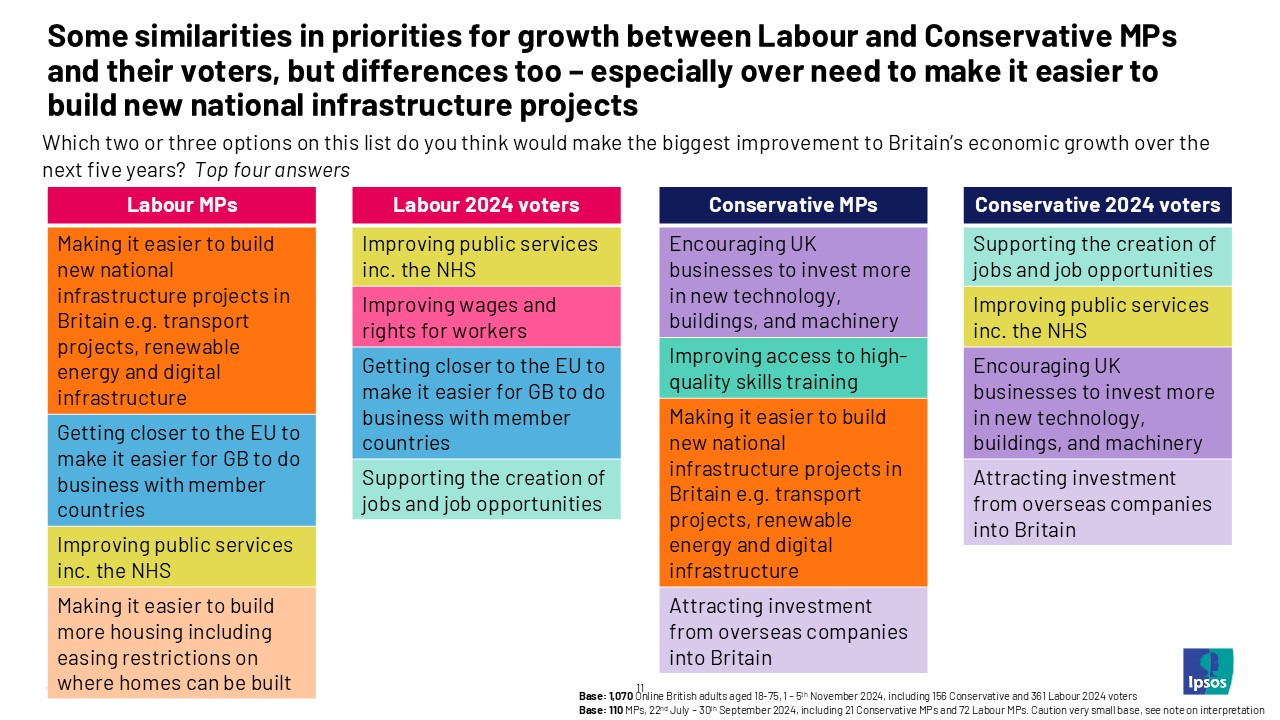New Ipsos survey shows divides between MPs and the public on priorities for economic growth
A new Ipsos study reveals divides between Members of Parliament (MPs) and the British public on priorities for economic growth. The research was carried out among over 100 MPs between July-September 2024 (with a profile reflecting the post-election House of Commons), and 1,070 British adults aged 18-75 in November 2024.
- Both MPs and the public think economic growth does more good than harm: However, MPs are especially likely to see it as positive, with 82% seeing economic growth doing more good than harm, versus 55% of the public.
- Both MPs and the public identify the level of inflation as a key economic indicator: 85% of MPs and 66% of the public identify the level of inflation as the factor that most influences their view of how the economy is performing, and interest rates are also important to both groups (mentioned by 62% and 52% respectively). After that, MPs are more likely than the public to follow metrics like national income (GDP) and unemployment.

- MPs and public views on growth versus the environment: 52% of MPs believe that more focus should be placed on protecting the environment, versus 23% who prioritise economic growth (23% say both are of equal importance). Public opinion is more divided on this issue, with 38% favouring the environment, and 30% favouring economic growth (24% equally).
- MPs largely favour immigration to support economic growth, public wants stricter limits: 62% of MPs agree that Britain should allow as much immigration as the economy needs to support growth, versus 24% who believe there should be strict limits on immigration into Britain even if that harms growth (Labour MPs are more likely than Conservative MPs to feel that Britain should allow as much immigration as the economy needs, though note small base sizes of subgroups). The public though leans towards stricter limits on immigration, even if it potentially hinders growth (31% in favour of greater immigration to support growth versus 49% who support stricter limits). Conservative 2024 voters strongly prefer strict limits on immigration (63%), while Laboru voters are more divided but marginally prefer allowing immigration for economic growth (by 44% to 36%).

- Both MPs and the public are divided on whether redistributing wealth or growing the overall economy is more important: However, there is a slight preference for growth among both MPs (39% favouring growth versus 33% favouring redistribution) and the public (40% favouring growth versus 28% favouring redistribution). 28% of MPs and 21% of the public say the two issues are equally important.
- MPs and the public differ on what would make the biggest improvements to Britain’s economic growth over the next five years: MPs prioritise new national infrastructure projects and closer business ties with the EU for economic growth, while the public focuses on improving public services, job creation, and better wages and workers’ rights.

- Public wants growth across the UK, MPs favour regional development: MPs and the public were also asked whether they think that more focus should be placed on improving the economy of specific regions and nations, or the UK as a whole. The public prioritises improving the UK economy as a whole (55% the UK as a whole versus 23% regional development), while MPs are more divided, albeit with a preference for regional development (38% the UK as a whole versus 49% regional development).
- Party differences*: There are some similarities for growth between Labour and Conservative MPs and those who voted for them in 2024. However, some differences emerge, particularly on the need to make it easier to build national infrastructure projects.

Gideon Skinner, Senior Director of UK Politics at Ipsos said:
Our MPs survey reveals some important alignments and divides between MPs and the public on economic priorities. While both groups see economic growth as largely positive and consider inflation and interest rates a key indicator, they diverge on the specifics. MPs are particularly strongly in favour of economic growth, and prioritise new national infrastructure builds and closer trade ties with the EU, while the public focus more on tangible outcomes like better public services, jobs, wages and treatment of workers. Immigration is also a clear point of distinction, with MPs favouring it to support growth while the public prefers stricter limits – although with clear party differences among both groups. Growth is central to Labour’s plans for government, but these findings highlight the complexities of navigating economic policy, and the necessity for Labour to build a narrative that addresses both national interests and public concerns.
Technical note:
- For the public portion of this survey, Ipsos interviewed a representative sample of 1,070 online British adults aged 18-75. Interviews were conducted between the 1st-5th November 2024.
- Over 100 MPs were interviewed via a mix of telephone and face-to-face interviews between 22nd July – 30th September 2024 (the exact number who answered each question varies, usually from around 110-120).
- *A note on party differences: The Ipsos MPs survey is conducted via a mix of telephone and face-to-face interviews with over 100 MPs each wave. The sample is reflective of the make-up of the House of Commons by political party, so the majority are Labour MPs. This means the data for “All MPs” tends to be more similar to the views of Labour MPs, but there is a wider range of opinions in the sub-groups. It is important to note that the base size of these sub-groups is very small, particularly for Conservative MPs (c20-24 interviews). This means there is a wide margin of error for these results. This data should be interpreted cautiously, as indicative of the range of opinion and differences of emphasis between Conservative and Labour MPs, rather than as a precise estimate.
- Data are weighted to match the profile of the population. All polls are subject to a wide range of potential sources of error.



